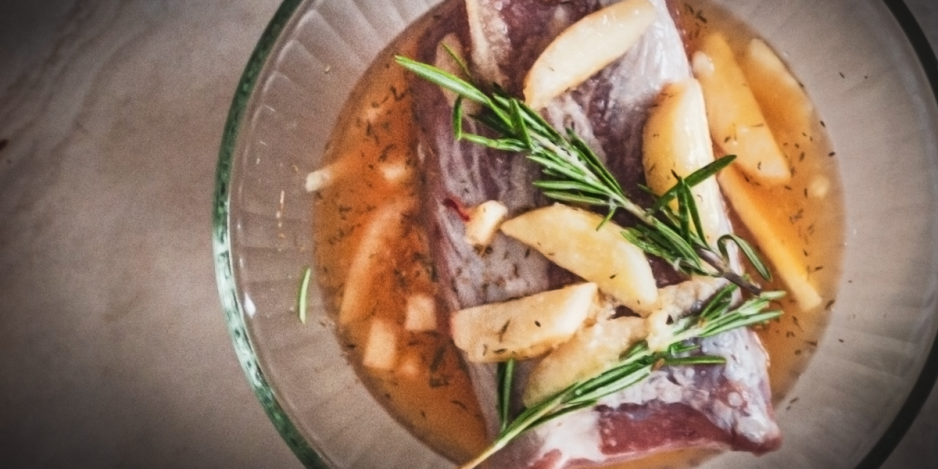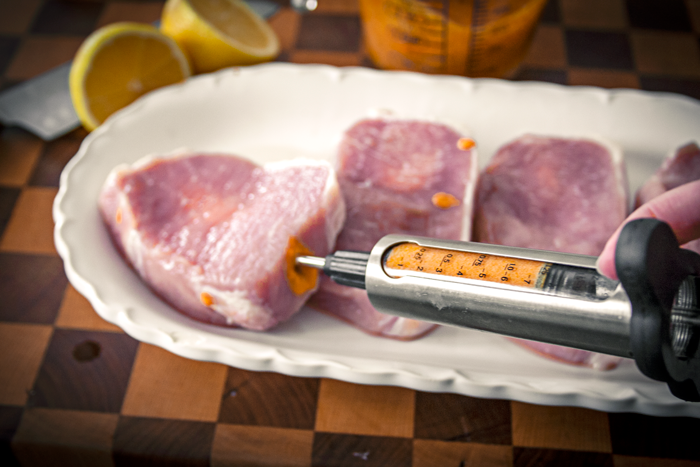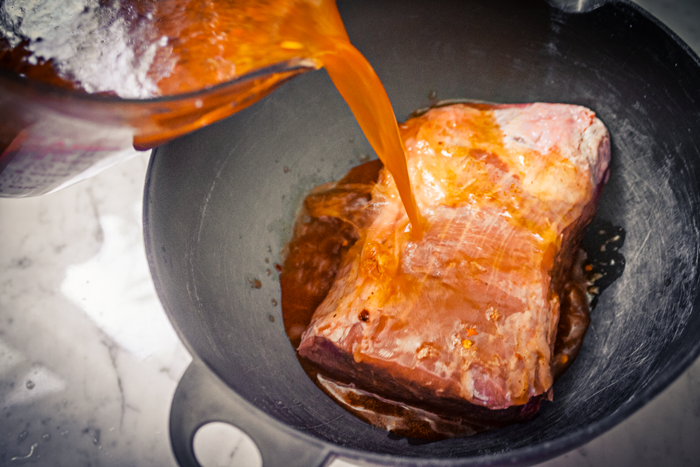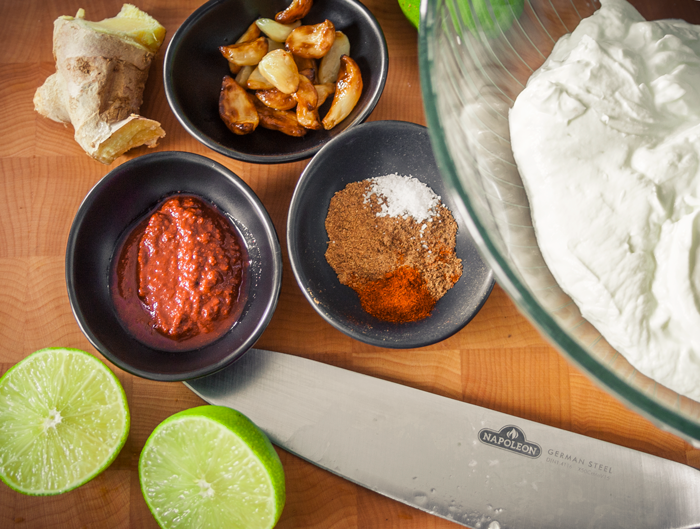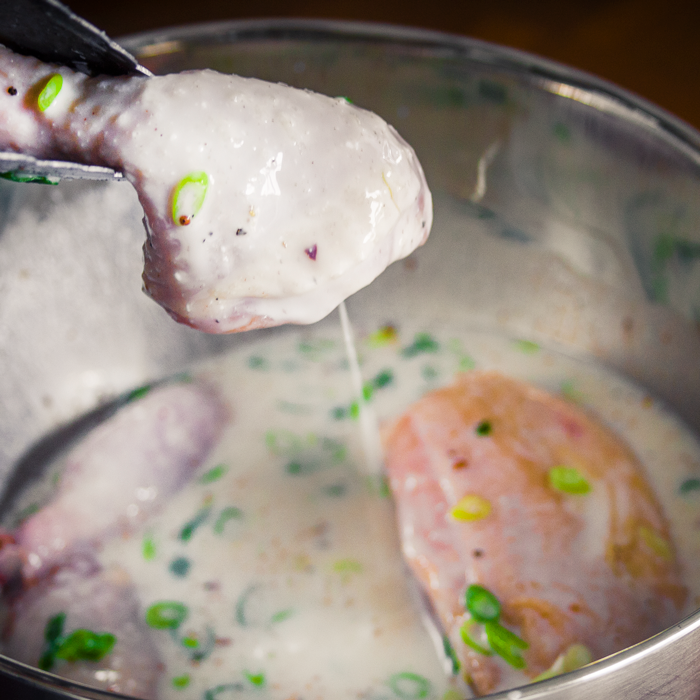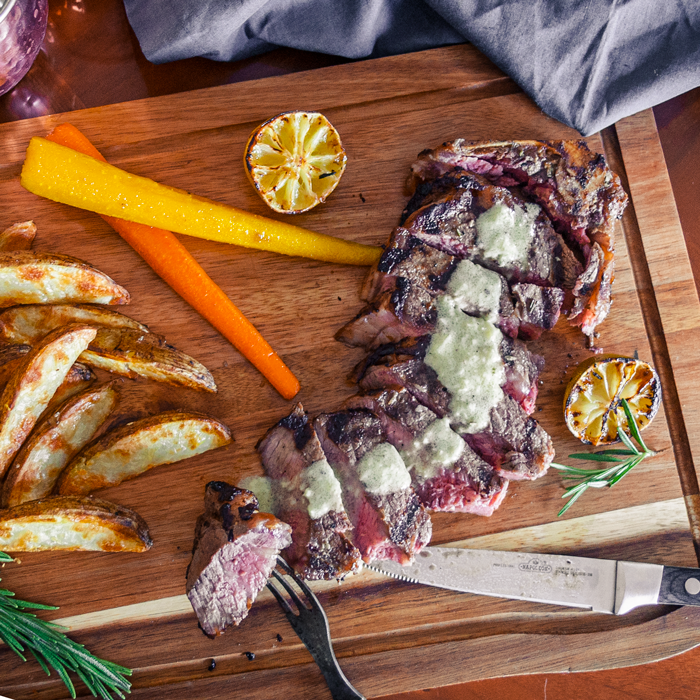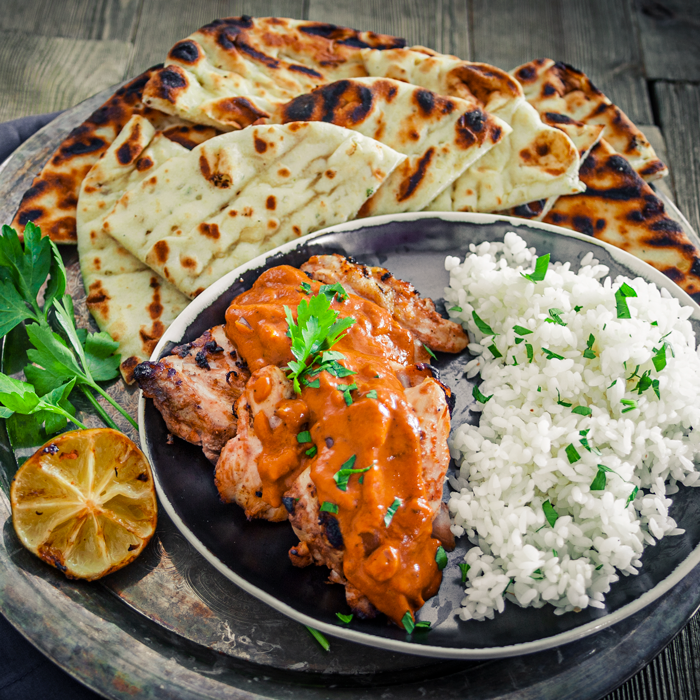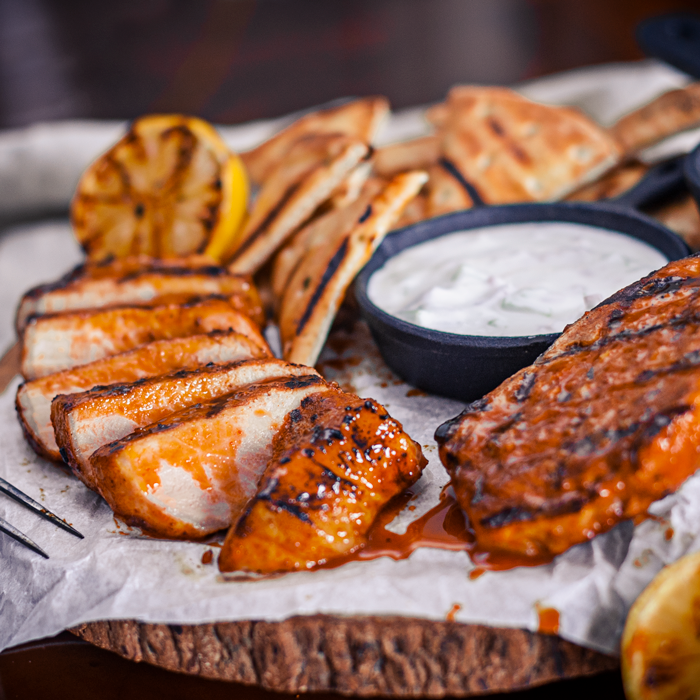
The Best Homemade Marinades & How to Use Them
Whether the goal is to add extra flavor to your meal to create tender meat from a tough cut, marinating is one of the most used techniques to achieve that goal. Find out how to make the best homemade marinades and the most fitting ways to use them.
How to Make the Best Homemade Marinade
Making the best marinades for your meals is as easy as One to Three. A ratio of one-part acid (or enzyme) to three-parts oil is the perfect base to just about every marinade ever. To this you add your favorite flavor creators, herbs and aromatics, as well as your salty and sweet flavors.
One Part Acid/Enzyme
Acids or enzymes are the part of your marinade that does the work. Acids denature protein, unwinding the tight protein bundles allowing moisture in. Enzymes break down the muscle fiber and collagen itself.
| Acids |
Lemon juice, lime juice, orange juice, grapefruit juice, vinegar, cider vinegar, wine vinegar, balsamic vinegar, rice vinegar, cola, buttermilk, yogurt |
|---|---|
| Enzyme |
Fresh pineapple, papaya, ginger, figs, honeydew melon, and kiwi |
Three Parts Oil
Oil is a fantastic carrier for flavor. Many of the things you will use in your marinade will be fat-soluble. The oil will coat every surface of whatever you are marinating ensuring that every inch is covered.
| Oil |
Coconut oil, avocado oil, olive oil, canola oil, vegetable oil, sesame oil* |
|---|
*Sesame oil has a strong and distinct flavor, use sparingly, or cut with other oils when using
Flavor Town
Flavors include herbs, spices, and aromatics. Many of these are fat-soluble – meaning that they become more flavorful when oil is added. Much like making tea, steeping flavors in oil will bring out the depth of your ingredients.
| Flavors |
Rosemary, thyme, cilantro, oregano, garlic, onion, shallot, chives, green onion, anise, fennel, chili flakes or fresh, savory |
|---|
Sweet & Salty
Sweet and salty flavors will make your perfect marinade. Salt is great for enhancing the flavor of anything and is molecularly small enough to physically penetrate the meat and will drag water with it. Sweet ingredients add balance to the acids and salt as well as enhance certain flavor profiles. You wouldn’t want sweet and sour without the sweet, right?
| Salty |
Salt, soy sauce, fish sauce, Worcestershire |
|---|---|
| Sweet |
Sugar, brown sugar, honey, molasses, agave nectar |
Salt component of marinade will draw moisture out of the meat. Because of the moisture lost, the meat will draw available moisture back into itself from the marinade drawing in any elements that are molecularly small enough to pass through.
How to Use Homemade Marinade
Using marinades is easy. Just mix and plunk your food into the mixture. Okay, there are a couple of little things that you should do to utilize a marinade to its maximum potential. Try these tips.
30 Mins to 12 Hours – Longer is NOT better
Because you are breaking down the structure of the meat when marinating you need to be aware of how long to leave your food in the marinade. Fish, seafood, and anything delicate like that should only be left for 30 minutes maximum with few exceptions being thick-cut salmon steaks or something similar. Most things can be left marinating for up to 12 hours, but, receives maximum flavor penetration within 3. Anything more has the potential to cause your meal to become mushy.
How Much?
You only need about 4 ounces (½ cup) of marinade per pound of meat.
Marinade is Only Skin Deep
Marinade only penetrates about ¼ of an inch. There are things you can do to ensure that more marinade gets into your food. Using the Napoleon 48 Blade Meat Tenderizer you can create small holes allowing marinade to penetrate deeper. Using a Napoleon Stainless Steel Marinade Injector you can take all of your favorite marinades and inject them directly into the meat, marinating from the inside – out. Another technique is slashing, where you use a sharp blade to create shallow cuts in the meat for more surface area.
What to Marinate?
Marinating doesn’t work the same for every type of meat. Marinating a roast will not be the same as marinating some fish. Delicate fish like tilapia and cod aren’t entirely suitable for marinade as they’re a bit too delicate – unless you are making ceviche. A thick roast will not benefit from marinade either. Using a marinade injector, in this case, would be a better solution.
Contain your Enthusiasm
Marinades should only be used in non-reactive dishes. Glass, stainless steel, and plastic are great choices.
Chill Out
Because marinating takes a while, remember to keep the food you are treating into the fridge until you are ready to cook.
Never Reuse
Never reuse marinade that has touched raw meat to marinate something new. Leftover marinade can be used on the food you are preparing if you have heated it to a boil and simmered for at least 5 minutes. To avoid the need to cook your marinade, double the recipe and reserve half to baste or use as a dip once the food is ready.
Get Saucy
If you haven’t doubled your marinade recipe, you can simmer the leftover marinade for at least 5 minutes. Turn it into a sauce by simmering a little longer, until it reduces and thickens.
Fast & Easy Marinade Recipes
Need some inspiration? Change your dinner up by adding a marinade. Quick little adjustments can have you eating something special every night.
Greek Style
Olive oil + lemon juice + oregano + garlic
Thai Style
Oil + coconut milk + lemongrass + birds eye chillies
Mexican Style
Oil + lime juice + cilantro + ancho chillies
Indian Style
Oil + Yogurt + lime juice + curry + turmeric
Japanese Style
Sesame oil + sake (rice wine) + ginger + miso paste
Southern Style
Buttermilk + garlic + salt + chili flakes
Try Our Best Marinade Recipes
Buttermilk Brined Chicken
Marinated Veal Steaks
Butter Chicken
Tandoori Pork Chops
Now that you know the secret to the best homemade marinades, how will you use them? Where will you travel using the ingredients in your pantry and your barbecue? Share your secret technique, marinade recipe, and your success stories on our social pages like Facebook and Instagram, using the hashtags #BBQmarinade and #NapoleonGrill.
Happy Grilling!
